The new pumpkin harvest has begun at Groentenhof Poelen in Groesbeek, the Netherlands. "Fortunately, we can now bring the pumpkins in dry," says Chris Poelen. And there is plenty of demand. "Europe has vegetable shortages across the board. So, customers are eagerly awaiting the pumpkins. But we've just started harvesting and can't do magic."

All the rain means this year's pumpkins are slightly larger. Poelen grows about 15 edible varieties. "The Hokkaido and Butternut are still the most popular, but the popularity of green Kabocha and the Muscat pumpkins have risen considerably in recent years. Consumers are becoming more familiar with pumpkins. Sales also increase at Halloween," Chris explains.
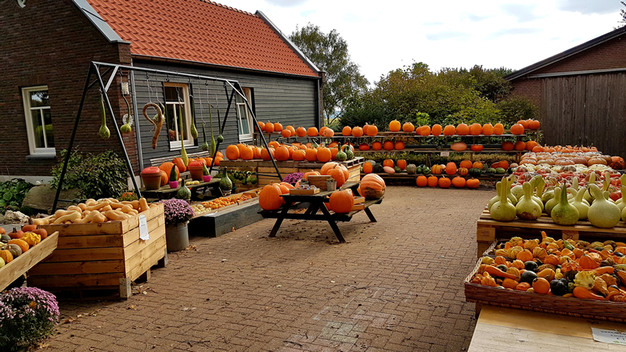
Groesbeek is not a typical pumpkin region. "There are mostly cows. In that sense, I'm a strange duck, " Chris laughs, who 20 years ago decided to start growing pumpkins full time. The grower does all his own sales towards supermarkets, wholesalers, exporters, processors, and in his pumpkin shop.

He also supplies German customers just over the border. "Packaging-wise, the recent trend's been moving more and more towards cardboard. But due to the higher cardboard prices, I'm increasingly shipping the pumpkins in green or black folding crates."
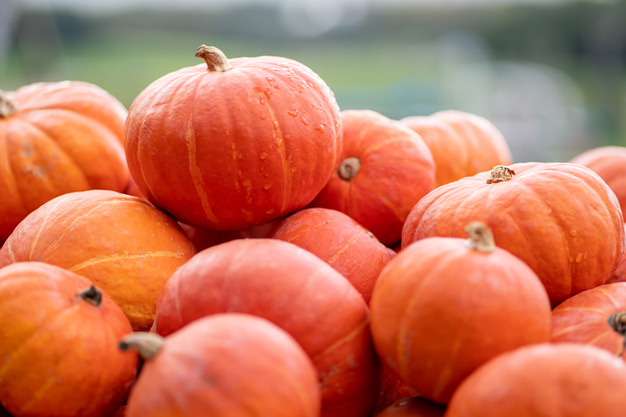
This is the second year Groentenhof Poelen has used part of its acreage for organic cultivation. "Originally, pumpkins were introduced in the Netherlands as an organic crop. We want to expand our organic acreage in the coming years. But, it remains challenging. Organic and conventional pumpkin prices differ, and people then quickly choose the cheapest. Also, you can't always get organic soil," says Poelen.

He says pumpkin acreage is quite stable. "There are a few dropouts and newcomers every year. But the cards have been shuffled in the pumpkin trade. Everyone has regular channels."
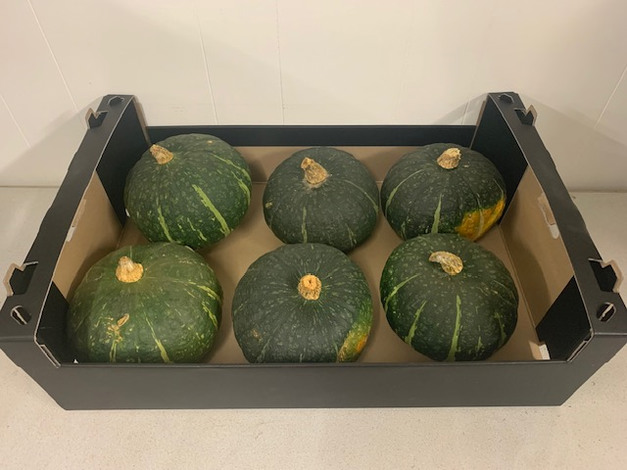
"Our current acreage is a disadvantage when it comes to mechanization. We've been harvesting for about six weeks, and the biggest challenge is getting everything in on time. That's why we invest heavily in harvesting mechanization and weed control. For example, this year, we bought a new harvester," Chris concludes.
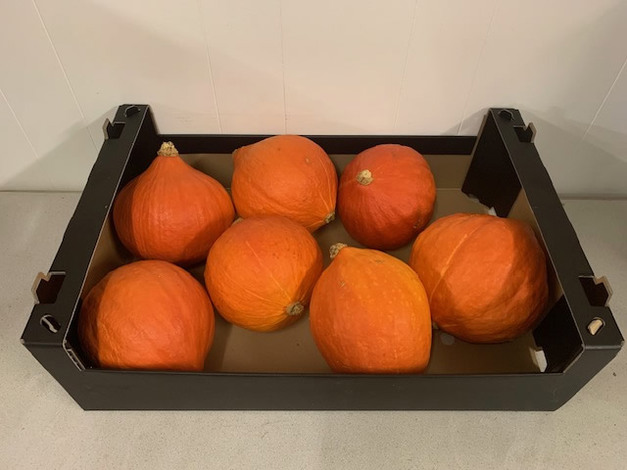
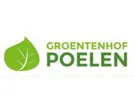 For more information:
For more information:
Chris Poelen
Groentenhof Poelen
12 Derdebaan
6561 KH, Groesbeek, NL
Tel: +31 (0) 627 337 133
Email: info@groentenhofpoelen.nl
Website: www.groentenhofpoelen.nl
